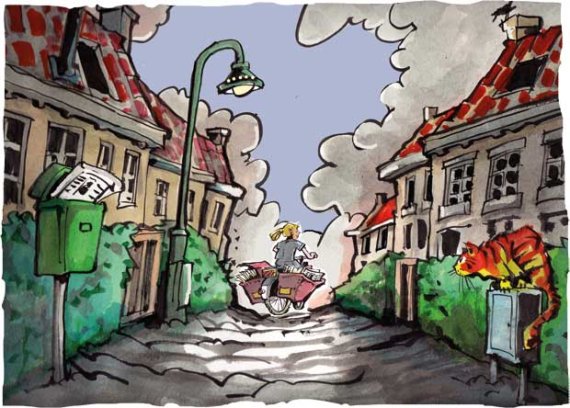All joking apart, I am amazed at all the under 18s employed in all kinds of part-time jobs in supermarkets and on paper rounds in the Netherlands. A habit that is very important for their personal development, providing them with valuable skills and experience. The work occurs after school and is not ‘mentally, physically, socially or morally dangerous’, to quote one definition of the negative effects of child labour. Working from a young age is a very positive thing, in my opinion. This practice does not happen much in Spain, where there is no special legislation which encourages it – or if there is, people and business owners are not aware of it. The supermarkets are mostly staffed by full-time employees and in the city where my parents live, the paper rounds are done by older women with strong legs. When I was growing up, none of my friends were earning money. It was normal that our parents supported our fun activities and trips or whatever else we wanted to spend money on. From the parents’ point of view, working hours would replace homework hours, so they were not much in favour of that. And to be honest, as teenagers, from our point of view working hours would replace hanging out and playing hours. If the family had enough money to support the children, not much attention was paid to the potential benefits of a job in terms of the children’s learning, independence and development. Seeing kids filling shelves in the stores made me think, read about and finally appreciate this practice of encouraging children to work.
Child Labour
The Netherlands sometimes reminds me of the good old days at my grandparents’ farm in the early 20th century. Child labour was still legal in Spain back then.

